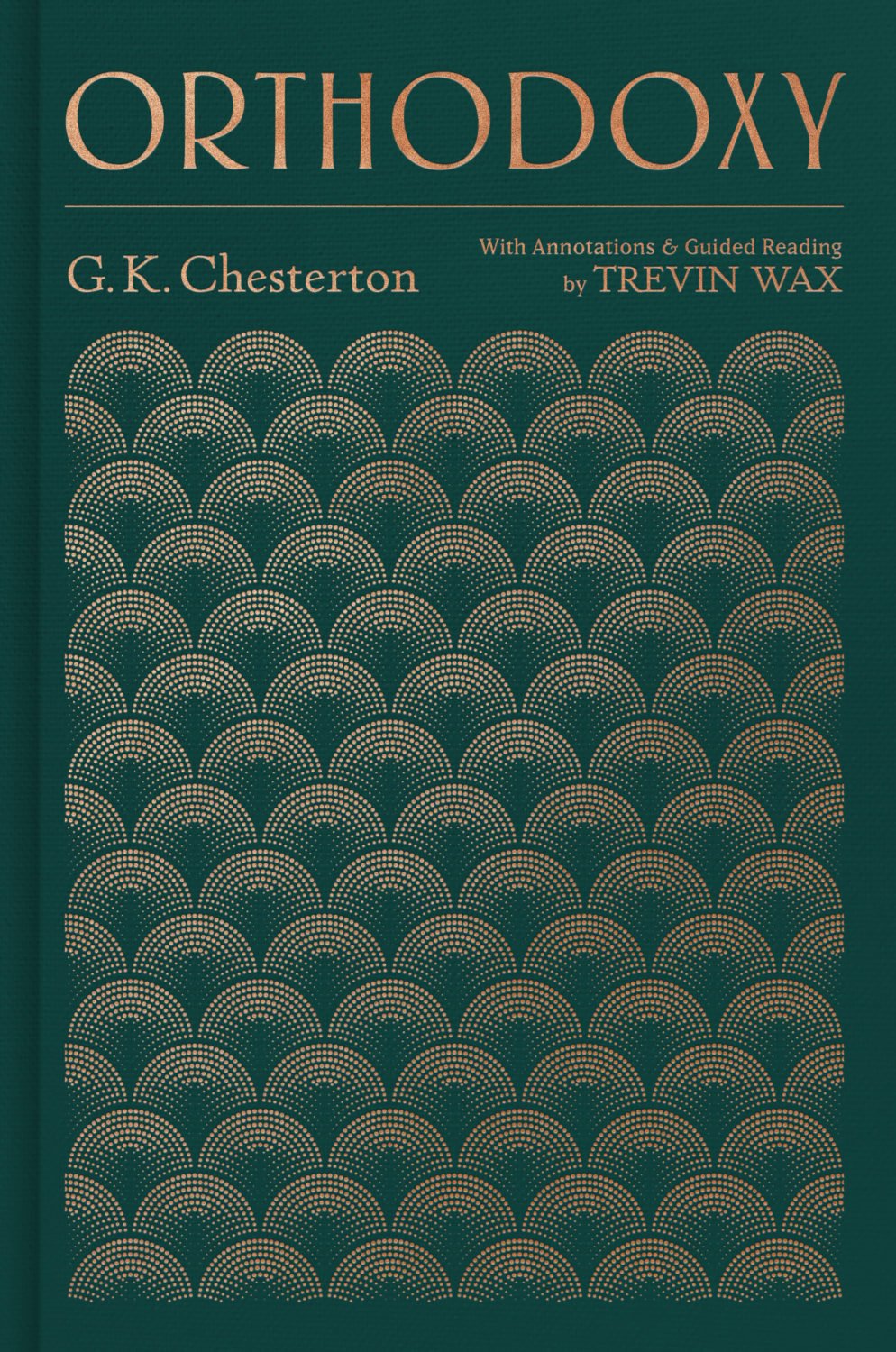A New Edition of Chesterton's Orthodoxy
If you haven’t read G. K. Chesterton, you should take the opportunity to do so.
He’s humorous, incisive, perceptive, witty, and a fierce defender of the Christian faith. Chesterton’s Everlasting Man is one of the volumes that contributed to the conversion of C. S. Lewis. Some find his contrariness and paradoxical thinking grating, but most sense the twinkle in the eye of a brilliant thinker who has been captured by a love of the truth.
Chesterton’s work is out of copyright, so I anticipate (if it hasn’t happened already) many cheap and barely readable versions of the text to pop up in online marketplaces. One of the challenges of reading old books in our age is finding a well-produced edition for a reasonable price.
B&H has produced a gorgeous printing of Orthodoxy, with an introduction, annotations, and guided reading from Trevin Wax. The annotations alone are worth the price of the book, because Chesterton drops many names of popular politicians, thinkers, and cultural fixtures without any context. It’s possible to get the general idea of the text without knowing who he is referring to, but the notes that Wax provides at the bottom of the page are very helpful. The guided reading is also useful for those who haven’t encountered Chesterton before, or who are unfamiliar with the conflict of Christianity and modernity. Chesterton is a very deep thinker, so the first trip through Orthodoxy can be tough slogging for the uninitiated. Wax scaffolds the content with a brief introduction to each chapter telling the reader what the gist is and what to look for; at the end of chapter there is a brief summary and some discussion questions. These are all helpful for engaging the book on its own terms.
Orthodoxy itself, of course, is a classic volume. There is a reason it has been in print for an extended period of time. This volume is a follow up to Chesterton’s book, Heretics, where he takes on Christianity’s modern critics directly, and often by name. However, some of those critics did not engage with Chesterton because, they said, he had not outlined his own position in the positive. They recognized that it is much easier to tear down opinions than it is to build them anew. Chesterton agreed and took them up on the challenge. The result was Orthodoxy.
Chesterton was, of course, a Roman Catholic, which shapes his approach to defending the faith. He also grossly misunderstood Calvinism—or at least, he has misrepresented every real version I have ever encountered in life or in print. And yet, Chesterton’s defense of Christianity from modernity is a defense that is appealing even for a low-church Baptist with Calvinistic tendencies. He makes the locus of his understanding of Christianity the Apostle’s Creed, which is a good place to start, if you ask me.
It’s challenging to sum up the contents simply, but it might be fair to say that, having looked at modernity’s answers to life’s most pressing questions, Chesterton is explaining why Christianity provides the best description for the world as it exists. He begins by showing the circularity of materialistic arguments for the world and the better answer he found in Christianity. The argument moves on from there. This isn’t a typical apologetics book, but trust me, it’s worth your while.
The latest edition of Orthodoxy from B&H is worth the money. It is a handsome edition and the notes add value rather than distracting from the quality of the text. If you haven’t read it at all, get some version of the book and pick it up. You’ll thank me later.
NOTE: I received a gratis copy of this volume from the publisher with no expectation of a positive review.
















Reading your Bible is a battle. There’s a reason why Paul lists Scripture as the sword of the Spirit in his discussion of the armor of God (Eph. 6:17). More even than that, Scripture reveals God’s character and is, thus, central to worshiping well (Psalm 119). That’s why reading the Bible is a battle.